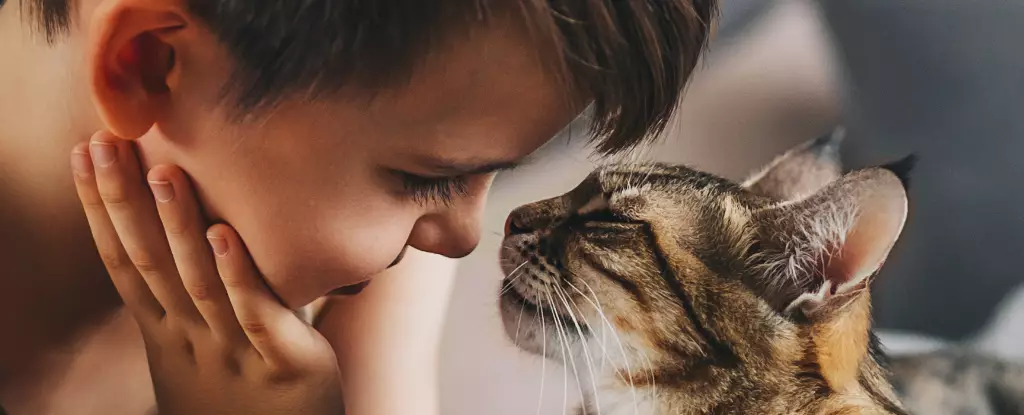For millennia, cats have been woven into the fabric of human history. Their companionship predates the internet and its viral sensations, serving as a source of comfort and amusement through their playful antics and soothing purrs. Today, the importance of understanding our relationship with these animals is heightened as research increasingly reveals both the benefits and potential downsides of feline companionship.
The bond between a cat and its owner transcends typical pet ownership. Various studies indicate that many individuals perceive their cats not merely as pets but as integral members of the family. A notable research effort in the Netherlands surveyed 1,800 cat owners, uncovering that half considered their feline companions as family. Intriguingly, one-third of the participants regarded their cats as akin to children or best friends, highlighting a profound emotional connection. This raises the question of how these relationships affect our psychological well-being.
Living with cats can promote feelings of companionship, decreasing social isolation and increasing life satisfaction. However, the depth of this emotional connection can vary significantly based on how one approaches their relationship with their cat. Research categorizes these relationships into styles such as “remote,” “casual,” and “co-dependent.” Those in a “co-dependent” or friendship-like relationship reportedly enjoy stronger emotional connections with their pets, suggesting that the perceived emotional bond can significantly enrich one’s mental health.
A wealth of studies suggests that owning a cat can offer numerous health benefits. Notably, cat ownership has been correlated with lower incidences of cardiovascular diseases, including heart disease and stroke. While these studies highlight a compelling association, it’s important to note that correlation does not equate to causation. Further exploration is needed to definitively say that the presence of a cat directly influences these health outcomes.
Moreover, cat companionship has been linked to favorable changes in gut microbiota and improved blood glucose levels, particularly among women. Even more encouraging is the finding that interactions with cats can momentarily alleviate symptoms of depression. Engaging in activities like petting or playing with a cat may offer short-term relief from stress and anxiety, although it remains vital to consider these benefits within a broader context.
Beyond quantitative studies, the emotional narratives shared by individuals highlight the profound personal impact of feline companionship. A survey conducted among military veterans revealed that despite some reporting poorer mental health metrics, many attributed significant emotional support to their cats. One responder remarked that their cat was a reason to get out of bed each morning, emphasizing the powerful role pets can play in managing mental health issues.
However, this attachment can lead to complex emotional landscapes, especially when caregiving strains manifest. For instance, among owners tasked with caring for cats with challenging health conditions, such as epilepsy, nearly one-third reported substantial caregiver burden. This underscores the potential downsides to pet ownership, especially when one’s mental health may depend heavily on the animal’s well-being.
A comprehensive perspective on cat ownership must also address associated health risks. Cats can harbor zoonotic diseases, with toxoplasmosis being a primary concern. This parasite, often carried by feral cats, can have severe implications, especially for pregnant women and those with compromised immune systems.
Moreover, allergies present another avenue of complexity. Approximately one in five individuals may develop sensitivities to cat allergens found in saliva, dander, and urine. Nevertheless, some evidence suggests that early exposure to cats may actually help prevent asthma and allergic responses by conditioning the immune system. This paradox demonstrates that while cat ownership can trigger allergies, it may also provide unexpected protective benefits.
The relationship between humans and cats is undeniably intricate, marked by a mix of emotional fulfillment and potential health implications. While the benefits of companionship are manifold, prospective cat owners must navigate the emotional and physical responsibilities that come with pet ownership. Ultimately, the nuanced interplay between cats and their human companions continues to appeal to our innermost desires for connection, but it also calls for a thoughtful approach to ensuring both parties thrive in their symbiotic relationship.


Leave a Reply